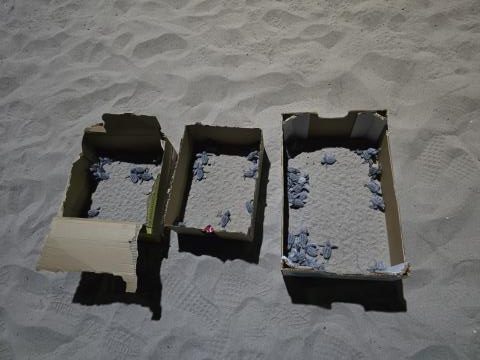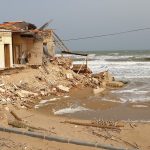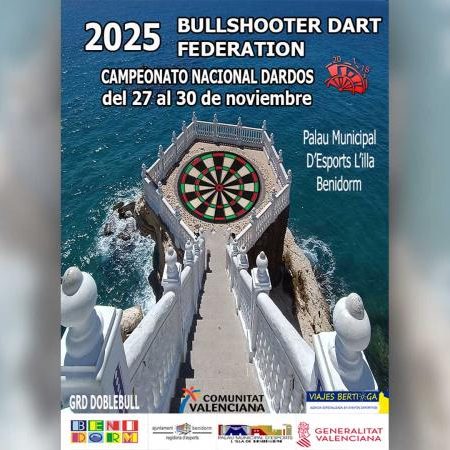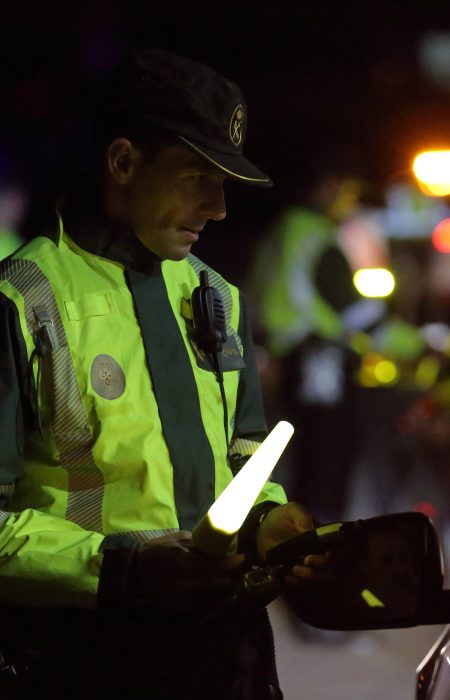According to municipal officials, 92 loggerhead turtle eggs hatched on Wednesday night at El Campello’s Carrer la Mar beach. Following a call from a citizen reporting the birth at midnight (at 12:50 a.m.), the Local Police, the Emergency Coordination Centre, and experts from the University of Valencia and the Oceanographic Institute of Valencia were dispatched.
The mobilisation began with 112, which called the Local Police night shift, whose officers were the first to arrive at the specified site, which was fairly close to one of the beach bars. The clutch had 98 eggs, 92 of which hatched, indicating that 20 individuals had already reached the water. The people who discovered the nest dropped another five hatchlings into the water before the technical team arrived. The overall number of eggs included four with embryonic development (three in the late stage and one in the early stage) and two without a pole, indicating that they had little chance of developing.
After all of the creatures were collected and carefully preserved, word travelled quickly among the scientific community and environmental organisations. Volunteers from numerous organisations, including the Climate Assembly, scientists from the Polytechnic University of Valencia, and a delegate from the Ministry of Ecological Transition, descended on El Campello beach. Five of these young turtles came at the Oceanogràfic of Valencia to participate in the Head Starting program, which allows them to be fostered in a protected environment until they reach a size that boosts their chances of survival in nature. Experts released the rest into the sea after cataloguing and examining them.
The location where the turtles were born was immediately taped off to prevent beachgoers from visiting it until scientists established there were no further nests. According to Oceanogràfic sources, there have been 12 nestings of turtles in the Valencian Community this summer, setting a new record. According to a statement from municipal sources, the Oceanogràfic Foundation team worked with the Valencian Government and the University of Valencia to conduct the exhumation.
Protected species
The Caretta caretta spends the majority of its life at sea and in shallow coastal waters. It rarely comes ashore, save for brief visits from females to excavate nests and lay eggs. It lives in the Atlantic, Pacific, and Indian oceans, as well as the Mediterranean Sea. The primary spawning grounds in the Mediterranean include Greece, Cyprus, Turkey, and Spain.
The “boba” is the world’s biggest hard-shelled turtle. Adults typically weigh between 80 and 200 kilogrammes (176 to 440 pounds) and measure 70 to 95 centimetres (28 to 37 inches) in length. At birth, they are only 4.6 centimetres (1.8 inches) long and weigh approximately 20 grammes (0.7 ounces). Incubation lasts roughly 80 days, thus the adult turtle only excavated and placed the eggs in this nest last May. Hunting has dropped significantly as a result of international regulations protecting them, while meat and eggs are still consumed in some countries where restrictions are not strictly implemented. There is a misconception that turtle eggs have a powerful aphrodisiac effect.
The conservation of this aquatic mammal necessitates collaborative efforts at all levels. The International Union for Conservation of Nature (IUCN) classifies it as a vulnerable species and includes it in the international endangered species catalogue. As a result, numerous Spanish municipalities (including El Campello for the last six years) take part in the annual “Turtles in the Mediterranean” awareness campaign.
Every summer, the Oceanogràfic Foundation, the Azul Marino Foundation, and the Seville Aquarium jointly launch this campaign. The purpose is to highlight our coast’s marine biodiversity and promote public awareness about the need to safeguard sea turtles.
This awareness campaign includes the placement of almost 1,700 posters on billboards in participating regions, as well as other highly visible physical media. The purpose is to ensure that residents understand what to do if they come across a distressed turtle, a visible nest, or newborn turtles, as was the case this morning.
According to the public note, if a sea turtle is discovered, call 112 to activate the Stranding Network, which is made up of the University of Valencia, the Ministry of Agriculture and Ecological Transition, and the Oceanogràfic Foundation itself.









No Comment! Be the first one.